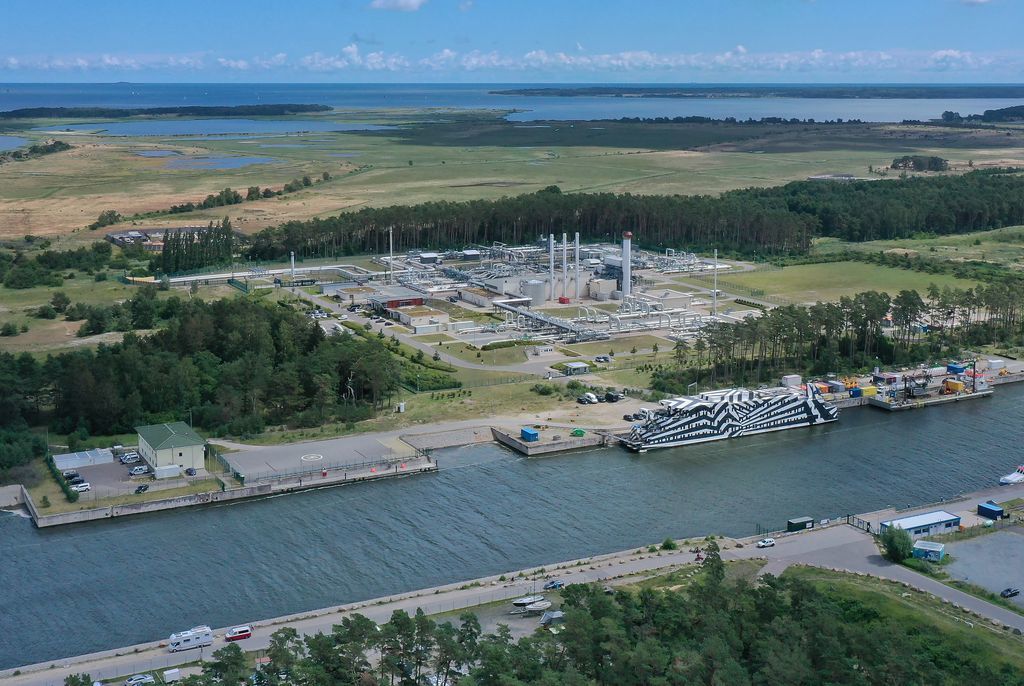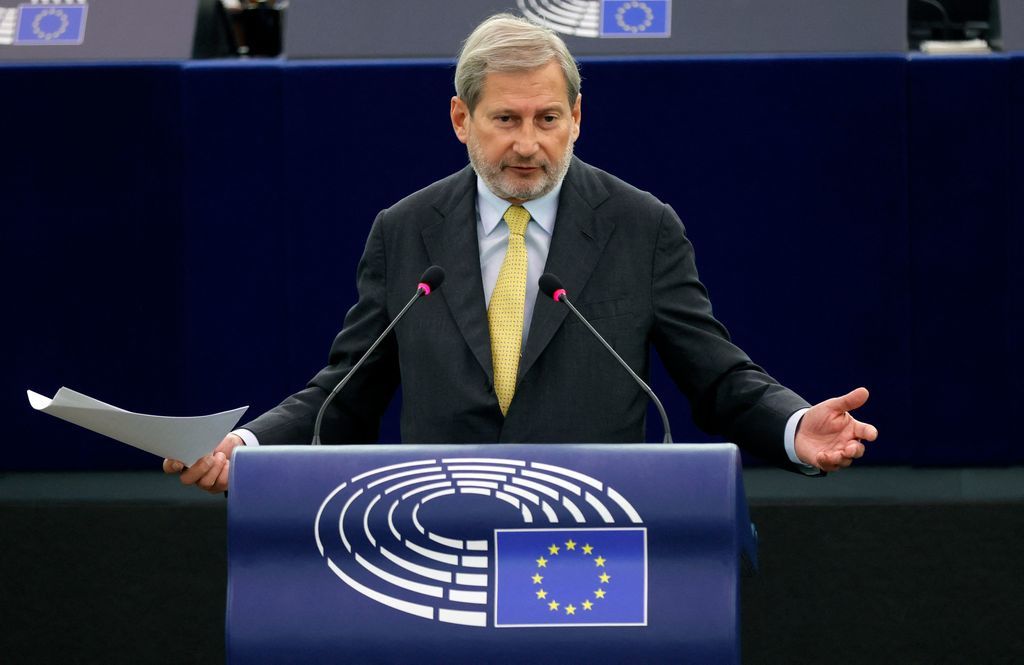
Europe’s war economy gets real
At the last scheduled meeting of European commissioners before the summer recess on Wednesday, Brussels technocrats will attempt their most far-reaching power grab yet seen in 2022: the right to impose mandatory gas rationing on the bloc's 27 member countries.
As citizens from Portugal to Poland swelter and perish in record-breaking heat, their governments are being asked to sign over their right to energy sovereignty in six days. The measures are being rushed through using emergency protocols, which mean no country will be able to veto the plan and the European Parliament will have no say.
Such extraordinary steps show just how close European countries have come to the edge of what is viable as a consequence of their actions to support Ukraine against Russia's invading forces. With inflation already spiking across the region, in part driven by war-induced market disruption, the EU's fight with Russia over gas is set to test the bloc's resolve to the limit. The economic hit may only just be beginning.
Documents obtained by POLITICO detail the blueprint for an EU-wide alert mechanism that would allow Brussels to decree mandatory gas consumption cuts from August to May. The cuts could "be triggered at any moment" if it appears that gas supplies will not be available to see the bloc through winter.
Countries will also have to update their national emergency plans with voluntary measures to cut gas use by the end of September, under the proposal.
There's no set figure yet for the size of the cuts to gas consumption that could be imposed. But according to two diplomats, a reduction of between 5 and 20 percent is being floated, with the expectation of a final agreement in the range of 10 to 15 percent.
 Aerial view of the receiving station for the Nord Stream 1 natural gas pipeline set near Lubmin, Germany
Aerial view of the receiving station for the Nord Stream 1 natural gas pipeline set near Lubmin, Germany
By July 26, when EU energy ministers are expected to rubber-stamp the new rules, Europeans could wake up to find themselves forbidden from indiscriminately blasting the air conditioning or, as temperatures drop in the coming months, turning up the heating too high.
Businesses deemed “nonessential” — which Commission documents suggest could mean the ceramics, glass and chemicals industries, but in some municipalities like Munich include local bakeries — could be paid to power down voluntarily, or find themselves first in line for a gas cut in extremis.
All this is being proposed in the name of the EU's campaign of solidarity with Ukraine.
Five months into Russian President Vladimir Putin’s full-scale invasion of his eastern neighbor, a war economy — with all its consequences — is finally set to descend upon Europe.
Don't touch the gas
In a bid to stymie the advance of Putin's armies, Brussels sought to deprive the Kremlin of billions in revenue from natural gas sales by voluntarily slashing Russian gas consumption in the EU by two-thirds this year.
That didn’t work, and EU countries made clear that they weren't willing to sanction gas, even as an oil embargo is set to kick in this December.
It's likely too late now: Data from the International Energy Agency (IEA) released Monday show that since the invasion, Moscow has already earned triple what it normally does from oil and gas sales in a single winter, meaning it can afford to keep cutting deliveries westward to Europe.
Putin has enthusiastically embraced Europe's weakness for Russian energy, turning gas into his most potent economic weapon. So far, 12 countries have had their gas supplies reduced or cut off by Russia's Gazprom. Brussels is now scrambling to regain control by slowing down consumption of Europe’s gas storage stocks while it can.
With leaders' efforts to seek alternative supplies from the Middle East largely failing, coal stations are firing up again across the EU, factories are switching to burning fuel oil, and a suspension of climate policy on emissions control is in the works.
The clock is ticking: On Thursday, the Russia-to-Germany gas pipeline Nord Stream is set to partially resume deliveries after a 10-day hiatus. National leaders in France, Germany and Spain say the most likely scenario is that Nord Stream stays offline — with Russian gas flows through other routes into Europe also expected to be halted imminently.
"We’re working on the assumption that it doesn’t return to operation,” European Budget Commissioner Johannes Hahn told reporters in Singapore Tuesday, according to the Wall Street Journal.
 European Commissioner for Budget and Administration Johannes Hahn
delivers a speech during a debate on General budget of the European
Union for the financial year 2022 at the European Parliament in
Strasbourg, eastern France in 2021 Pool
European Commissioner for Budget and Administration Johannes Hahn
delivers a speech during a debate on General budget of the European
Union for the financial year 2022 at the European Parliament in
Strasbourg, eastern France in 2021 Pool
If Hahn is right, the long-term outlook will be dire. Commission estimates indicate a 1.5 percent drop in GDP across the bloc if Moscow stops delivering natural gas.
To weather such a hit once temperatures drop, "the extra gas that needs to be saved over the next three months is [on] the order of 12 billion cubic meters — enough to fill about 130 [liquefied natural gas] tankers,” said IEA Director Fatih Birol.
Bailing out Germany?
Yet already, some of the loudest voices who called for punishing Russia with sanctions are now gnashing their teeth at the Commission's latest plan. Belt-tightening at home to bail out gas-guzzling neighbors such as Germany is not popular in parts of Eastern Europe.
Berlin is one of the few capitals that has signed so-called solidarity agreements, in which neighboring countries promise to share extra gas in crises. The Commission has urged countries to sign more — but some are wary of these voluntary arrangements being enforced with binding cuts at home if there’s not enough to go around.
"We are against imposing mandatory reduction targets," said Polish Climate Minister Anna Moskwa, whose country is now facing the looming possibility of a domestic coal shortage in the wake of sanctions on Russian imports. Poland does not have solidarity arrangements with any of its neighbors, according to Commission records, but Moskwa was nonetheless adamant that “the solidarity mechanism must not lead to a reduction in the energy security of any member state.”
Hungary has gone further already. Viktor Orbán's government has announced that its new energy emergency plans will forbid gas from leaving its borders beginning in August — provoking a sharp rebuke from European Energy Commissioner Kadri Simson.
"Individual national restrictions affecting gas cross-border flows are unwarranted and can only exacerbate problems in the current gas market situation," Simson warned.
In Spain and Portugal, governments are already partially subsidizing the cost of gas used in electricity — and watching France import all the cheap power it can. Spanish skeptics point out that saving gas at home won't help their French neighbors much, given limited gas interconnections between the two countries.
“We are in a situation where one needs to decide in the best possible way how to allocate resources,” said Georg Riekeles, associate director at the European Policy Centre, a think tank. “It’s very difficult to completely socialize or mutualize the cost of the crisis when the choices that are conditioning [the current situation] have been national.”
One EU diplomat acknowledged that imposing fuel rationing on EU countries would be unthinkable in normal times, but given the winter risks, “we cannot exclude any option.”
Another diplomat was more direct: "We don't like it at all."











